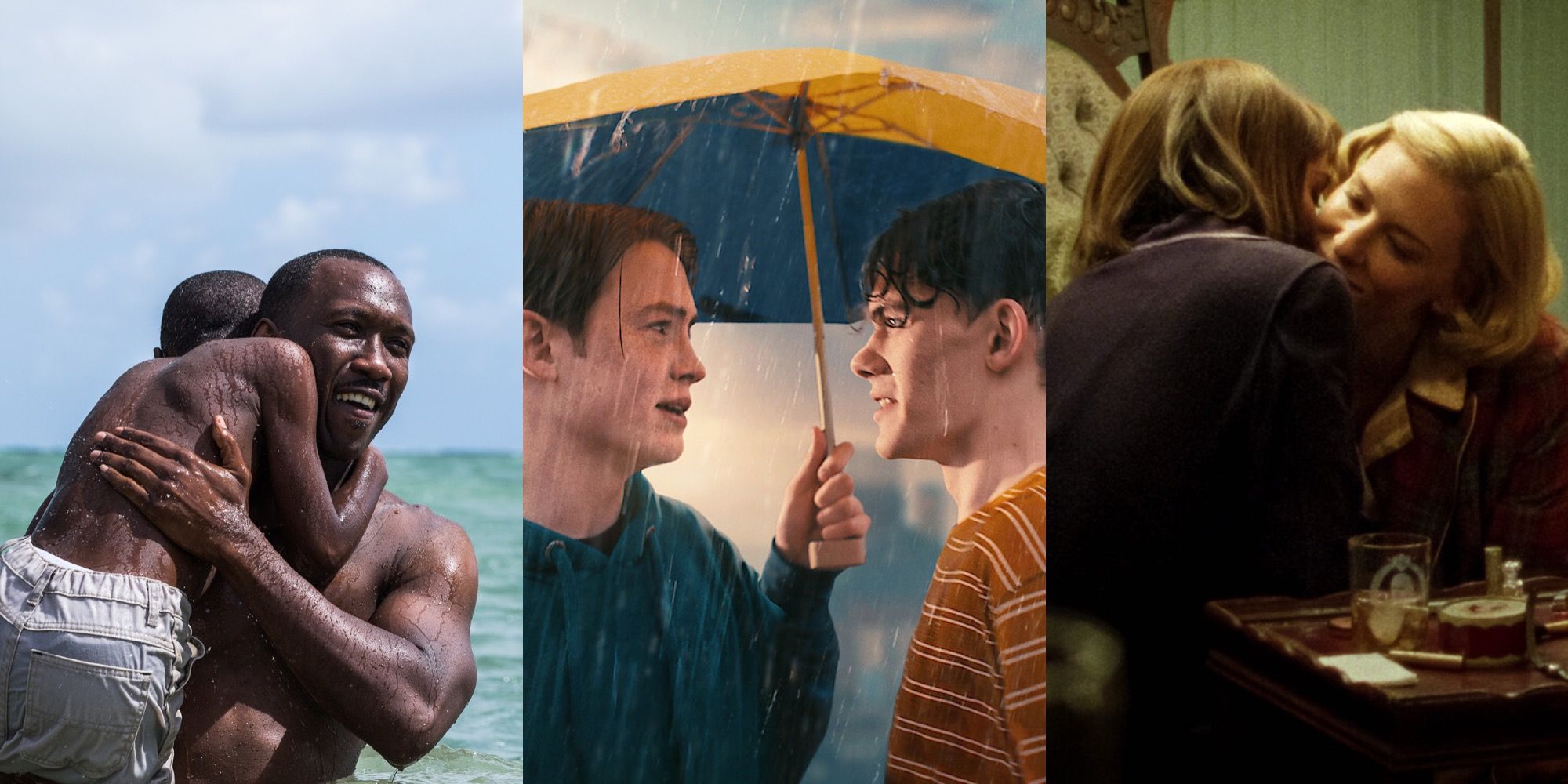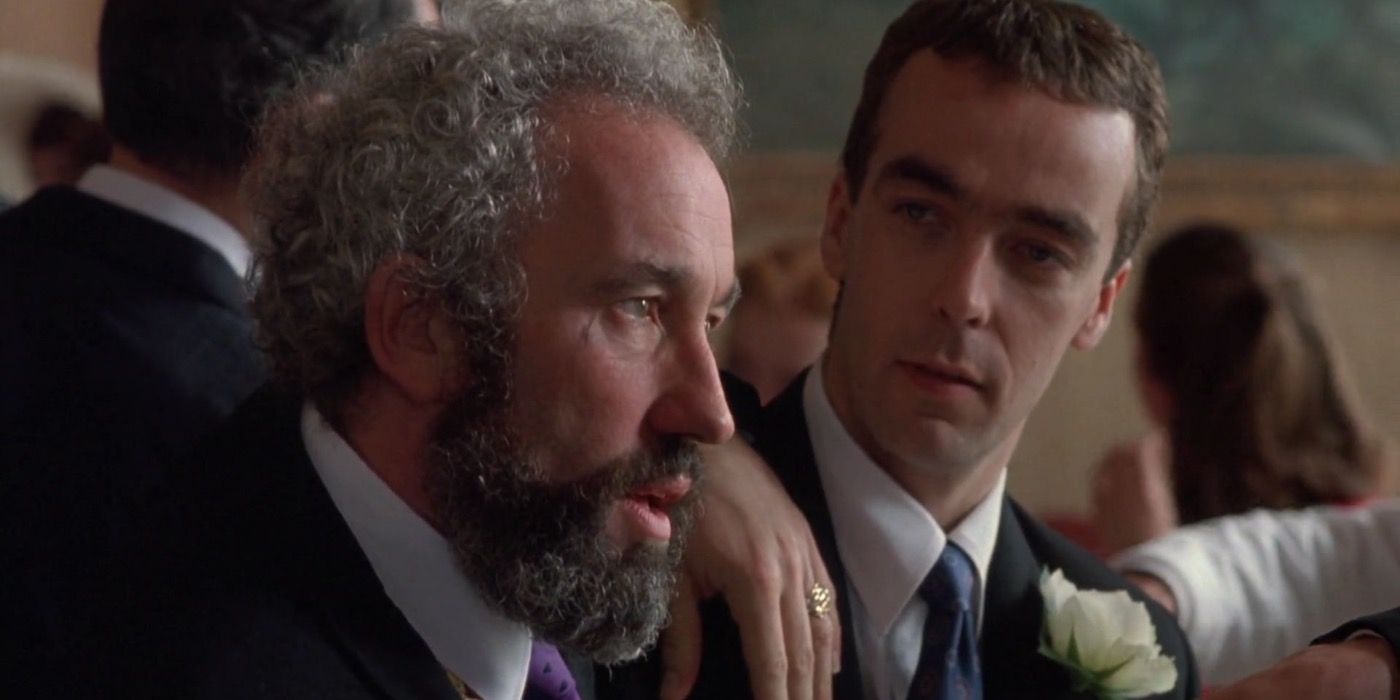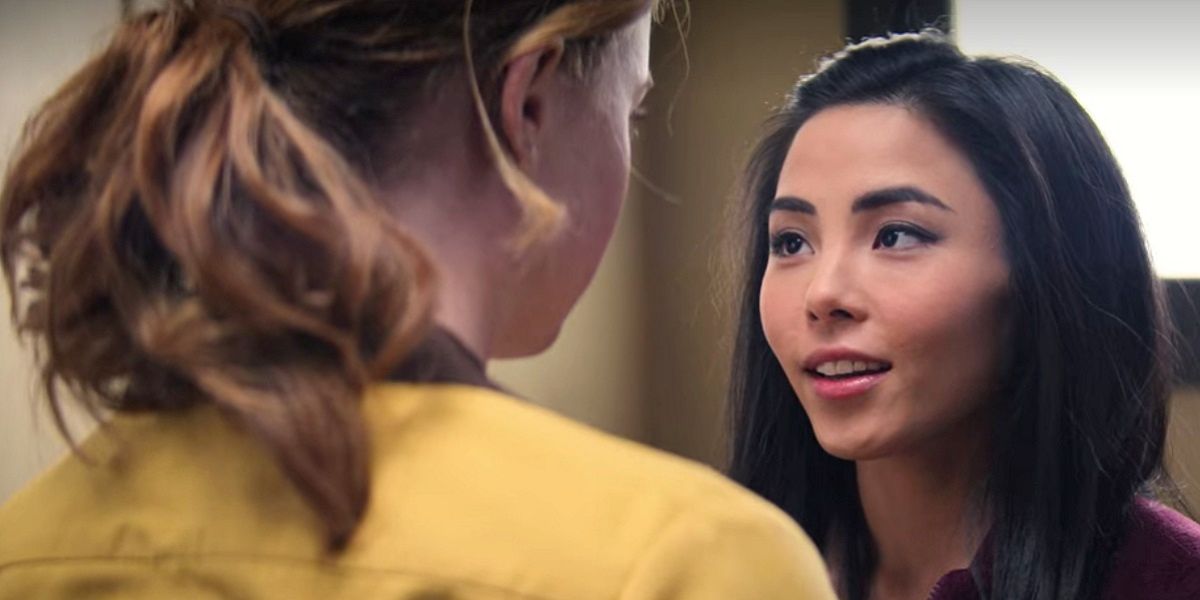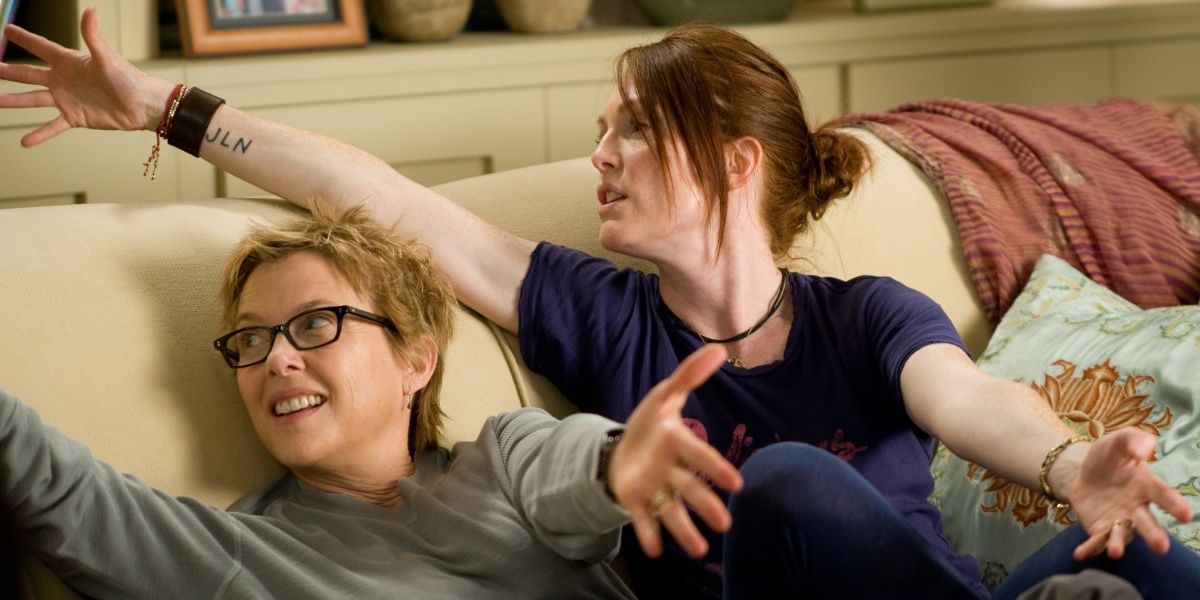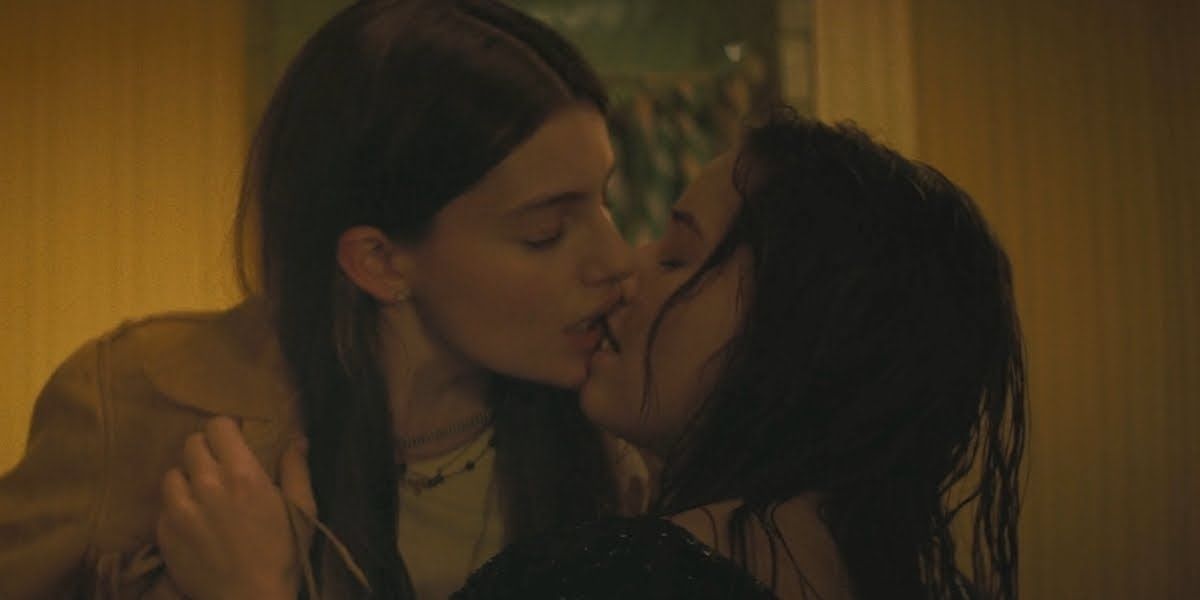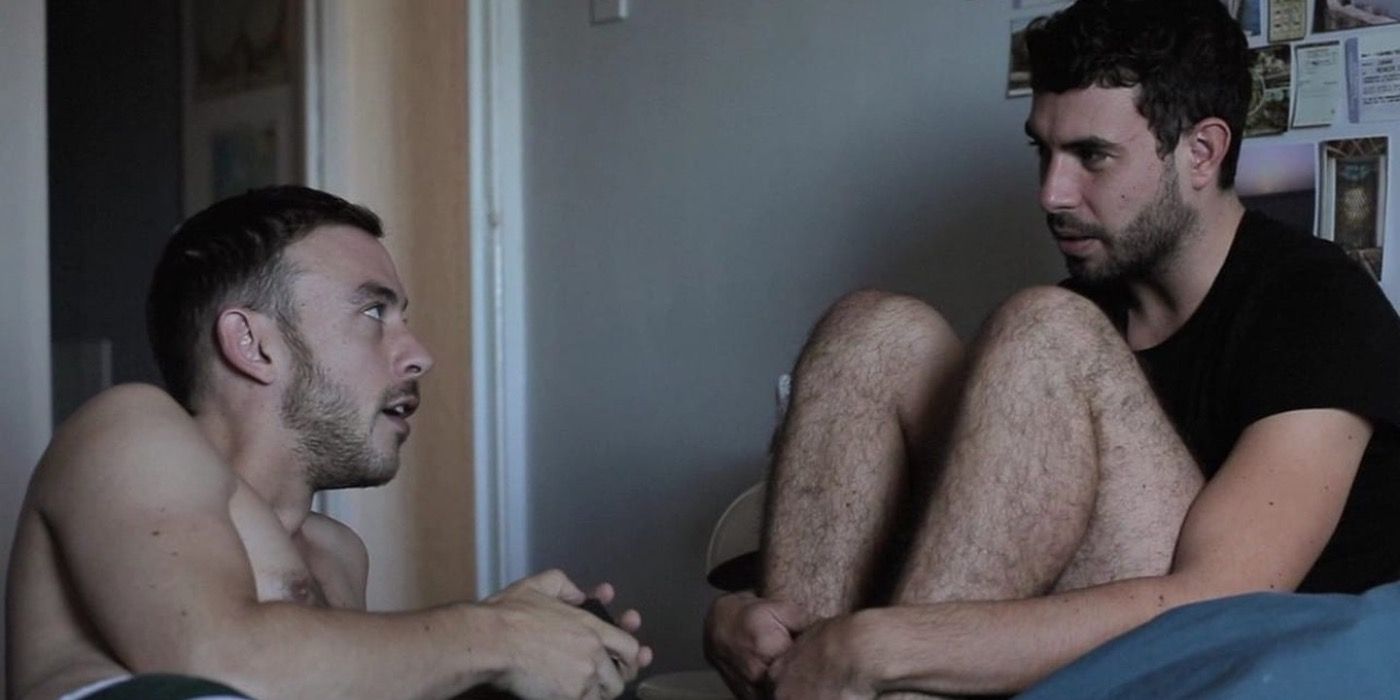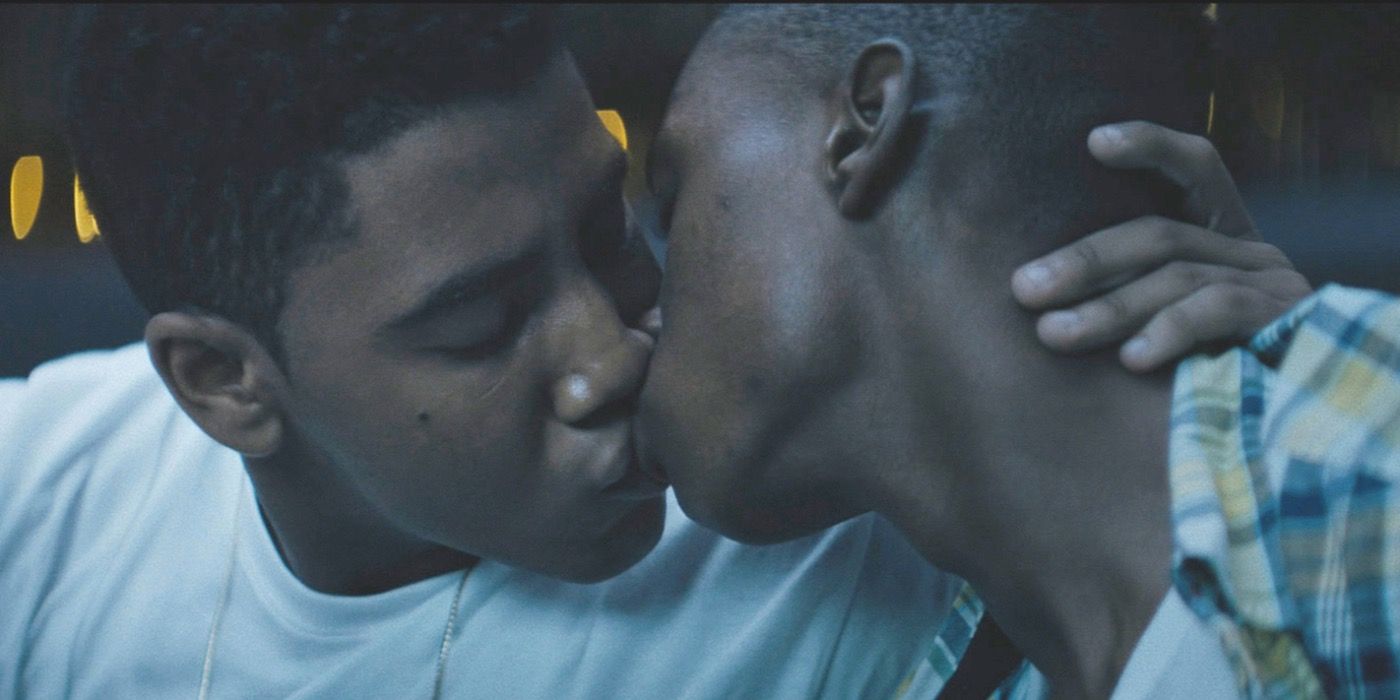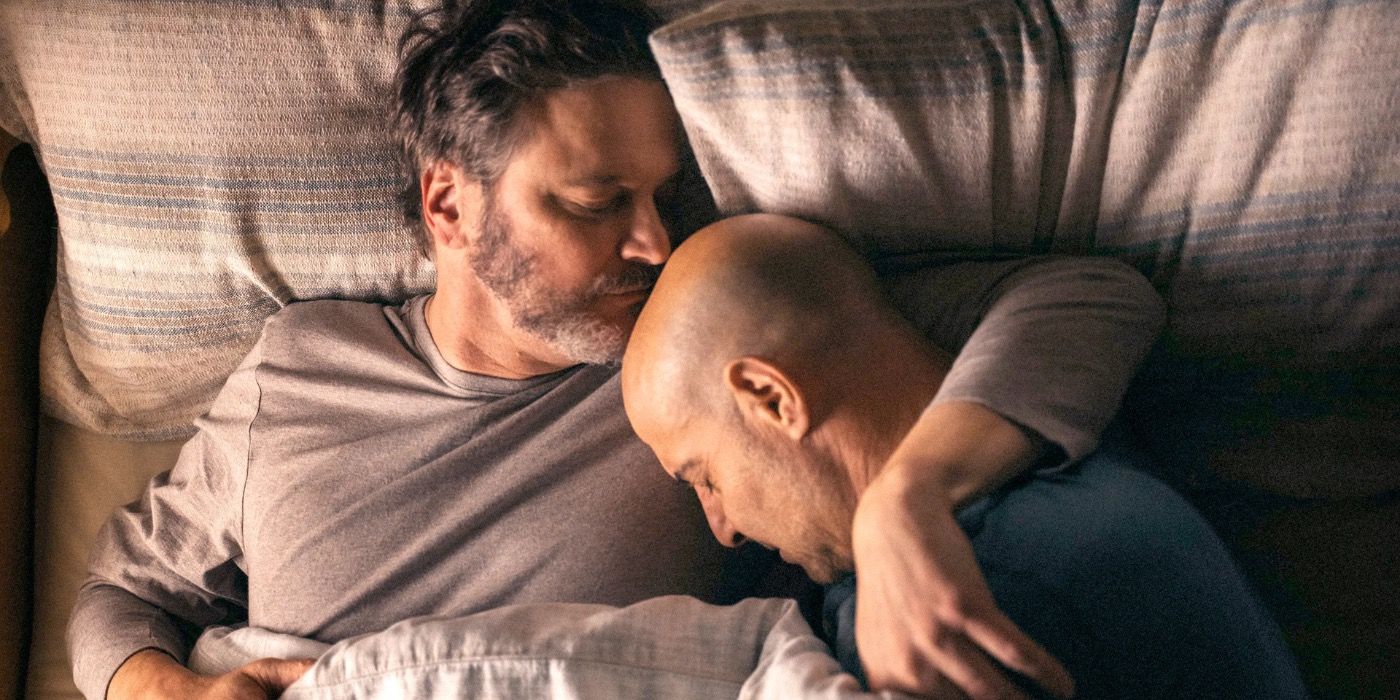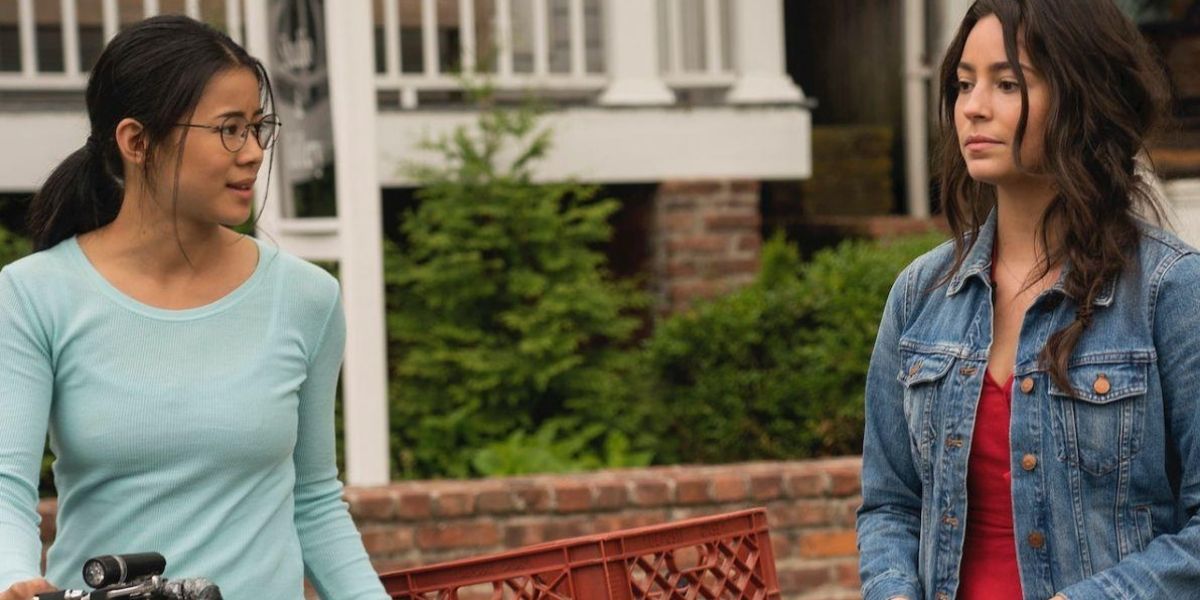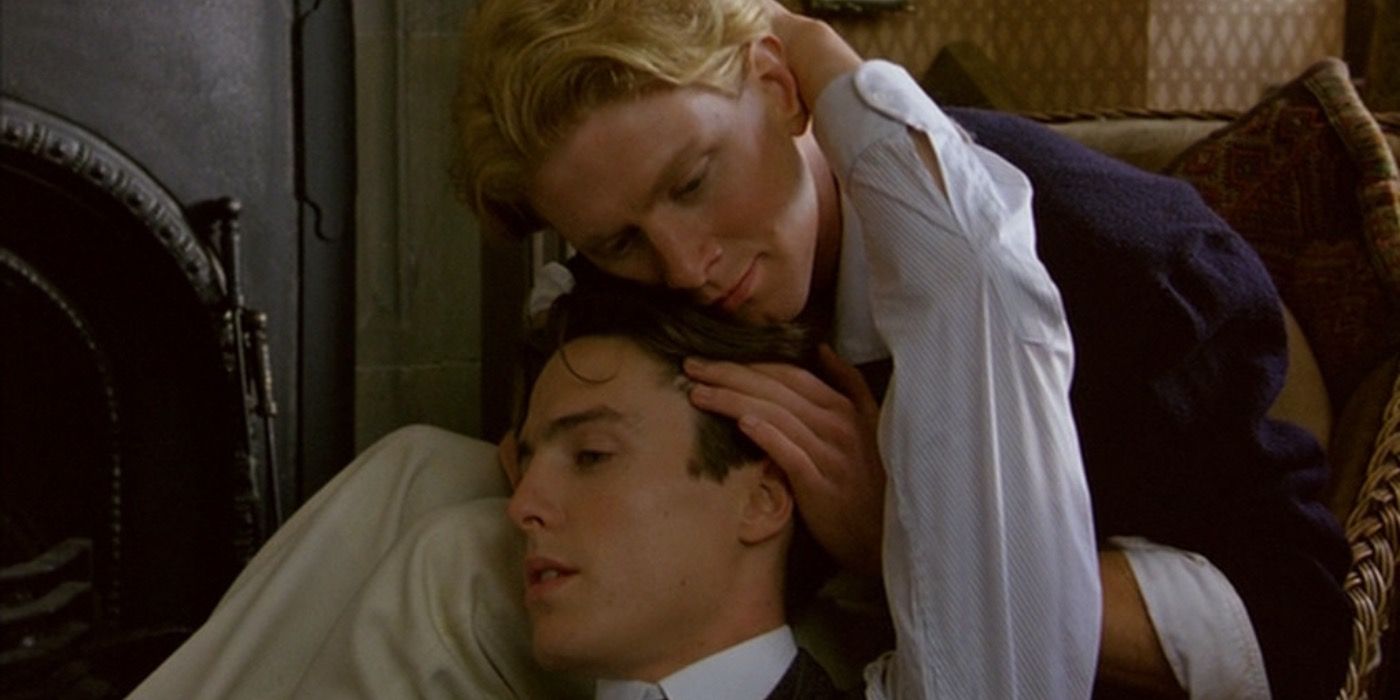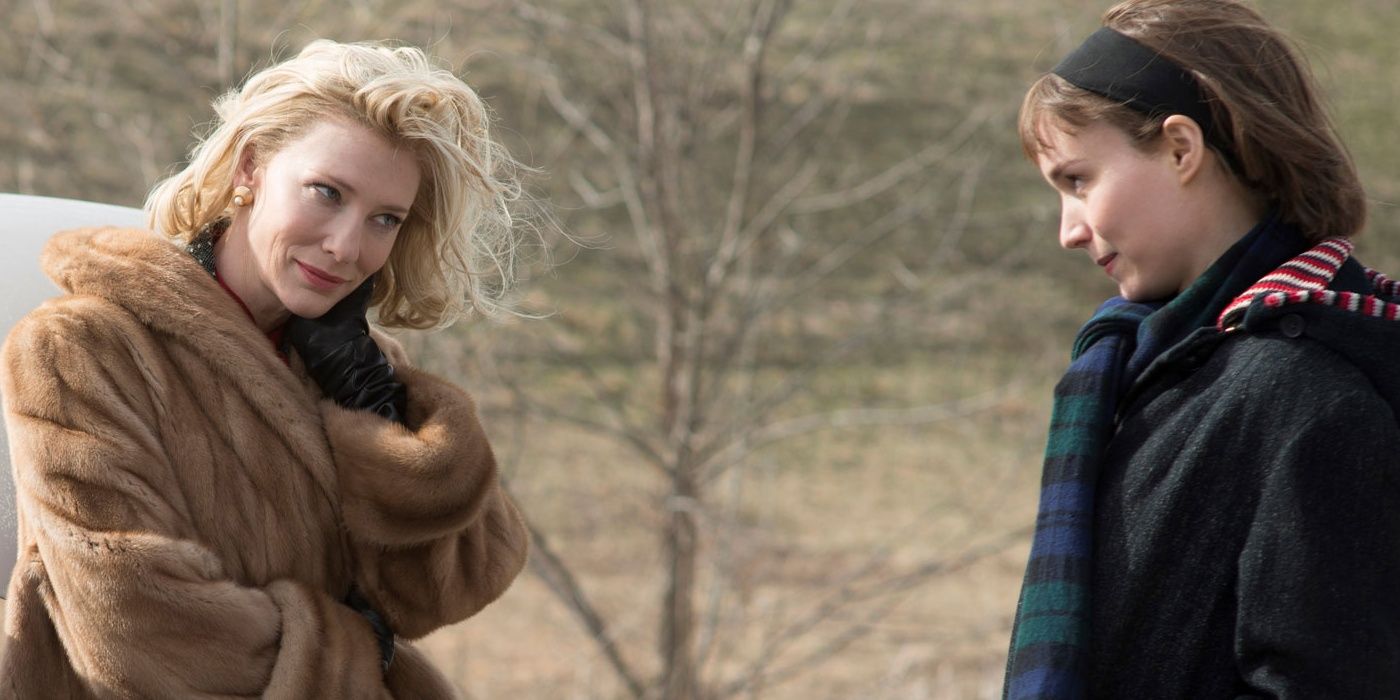The recent release of Heartstopper has caused a stir in the world of film and TV for its refreshing and heartwarming representation of queer love that certainly won fans over. The series prompted discussion surrounding the depiction of the LGBTQ+ community within cinema and received praise for its ability to avoid trauma and instead replace it with true romance.
There are several movies that give Nick and Charlie's sweet romance a run for its money, featuring either married couples or awkward teen experiences. Here are ten that accurately represent a queer love, similar to what one would find in Heartstopper.
Four Weddings And A Funeral (1994)
Four Weddings And A Funeral continues to be an iconic romantic flick that accurately portrays queer love through the characters of Gareth and Matthew, despite being released in 1994. Viewers are introduced to the couple going about their day, reinforcing the normalized approach the movie took to queer representation.
Their relationship is seemingly accepted by their friends, therefore, cementing the couple's relationship as a firm staple within the movie. The romantic but somewhat tragic tale strayed away from the AID related deaths commonly seen in cinema at the time and instead filmed Gareth's final moment, dancing, reinforcing the movie's ability to represent queer love away from the AIDs crisis.
Let It Snow (2019)
Let It Snow is one of the best teen holiday movies that fans can't help but watch even out of season. The movie takes on a similar structure to the famous festive flick, Love Actually, but is very different in its representation and targeted demographic. The book-to-movie adaptation replaced heteronormative relationships by including a queer romance to unfold on screen (albeit very slowly).
The movie has a stereotypical storyline surrounding the coming out of Kerry but goes beyond just highlighting this important moment by also providing viewers with the out and proud character of Dorrie. The movie highlights the reality of queer love in terms of navigating teen relationships and ultimately ends with Dorrie and Kerry's happy ending of support, love, and friendship.
The Kids Are All Right (2010)
The Kids Are All Right divided fans, especially members of the LGBTQ+ community, with many feeling the movie played into the idea of lesbian women continuing to seek male attention. However, for others, Jules's character actually highlighted the fluidity of sexuality and even subtly represented bisexuality which is made much more visible in Heartstopper.
Whilst the movie was met with controversy, it still provided viewers with a great representation of queer love through married family life which was met with the same turbulence that viewers resonate with within their own lives. The Kids Are All Right showcases queer love through a future that other queer characters don't always receive past their prominent coming-out scene.
Booksmart (2019)
Booksmart is a coming-of-age movie that everyone needs to see. This teen flick accurately represents those adolescent years of parties, friendships, and wild adventures. The movie places queer romance as a "non-issue" by creating open conversations surrounding Amy's open sexuality and her crush on Hope whilst also capturing the true essence of teenage crushes.
The bathroom scene with Amy and Hope truly explores that teenage awkwardness through the lens of queer love, it replaces the ultra-smooth sex scene with something that is more realistic, resulting in it being heartwarming, comedic, and important bit of representation. From the way in which Amy's character is introduced to the moment viewers finally see her connect with Hope proves the ease with which filmmakers can represent queer love in a positive way!
Weekend (2011)
Weekend is a charming independent flick that normalizes queer relationships from the offset by making the bond between Russell and Glen after their one-night stand. The movie has a way of making simple dialogue, intriguing with lots of depth to it which is essentially why Weekend is usually referred to as a conversationalist piece.
The onscreen chemistry and simplicity of the men's bond soon develops into much more through conversation, resulting in viewers rooting for them to get over their commitment issues and finally be a couple. The movie is a poignant flick that captures that one-night stand realm of time where two strangers become much more through in-depth conversations that reframe queer love into a cinematic art form that touched the hearts of many.
Moonlight (2016)
Moonlight is a deeply personal coming-of-age flick that gained a lot of support when it was first released and even found itself highly nominated for many awards. The movie challenged many subjects but it was its representation of queer black men that was celebrated by fans and critics internationally, Moonlight replaced the white queer love story seen so commonly within the movie for something more inclusive and representative.
The movie challenges the notion of what gay "looks" like through its presentation of a hyper-masculine character at the center of a queer love story. Whilst the movie is heart-wrenching and warming with the kiss between Chiron and Kevin winning best picture, it is definitely a powerful movie that showcases that queer love doesn't have a particular look.
Supernova (2020)
Supernova may have been met with some criticism regarding its queer characters being played by two straight actors but the movie represented queer love in a way that was yet to be seen. The movie immediately introduced Tusker and Sam as a firmly cemented couple that were off on their final road trip, the pair's on-screen chemistry was aided by their use of personal affection that warmed the hearts of many viewers.
Whilst their story is a tragic one due to the diagnosis of dementia, the movie highlighted the real essence of true love and the idea that a couple is a joint partnership of support, love, and understanding. It took the phrase 'till death do us part' seriously and provided viewers with a fully-fledged portrayal of queer love that remained romantic, realistic, and heartfelt to the very end.
The Half Of It (2020)
There are many things viewers learned about love from The Half Of It that is only heightened by their knowledge that the story is based on the real-life experiences of its director: Alice Wu. The movie highlights the idea of sexuality being a sin, growing up in a small town, and trying to accept one's self despite bullying, it sees queer love progress through a somewhat straight curtain.
The movie has multiple layers but highlights how love isn't always what one imagines and showcases what it can be when those outdated views are challenged. Whilst the movie doesn't necessarily see the pair commit in the end, it does see the couple rise up and accept the love clearly between them, emphasizing the power that love can have on a narrow-minded town.
Maurice (1987)
Maurice is not only a visually beautiful film but also a stunning depiction of queer love between two men in the time of a repressed society. The couple has brilliant on-screen chemistry that delves into the very close intimacy of love and is perhaps why it remains such an iconic cinematic staple for the LGBTQ+ community.
Although the movie highlights some very raw and real issues faced by the community even today, it accurately depicts the very feeling of falling in love. The love story between the pair is so genuine that viewers suggested they could feel the chemistry through the screen with an emphasis on touch, words of affirmation, and a mutual acceptance.
Carol (2015)
Carol made waves when it was first released in 2016 and was even deemed the best LGBTQ+ film of all time by many critics. The movie mastered the use of subtle glances and body language that viewers could read clearly as a growing love between Carol and Therese, their love story accurately represented the desire shared by the pair in a time when their love was forbidden.
The movie has an unusually happy ending for a queer romance that shocked fans and is part of the reason for its popularity. The pair take time away to tackle their own life challenges unrelated to their sexuality and instead meet again in the future when the timing is right, the happy ending cemented Carol's place as a great queer romance by giving the main characters the right time to have their happy ever after.

